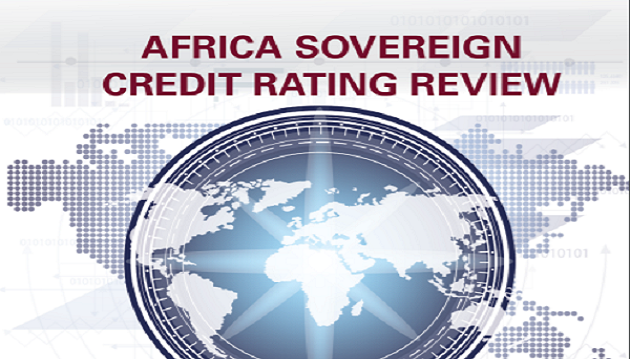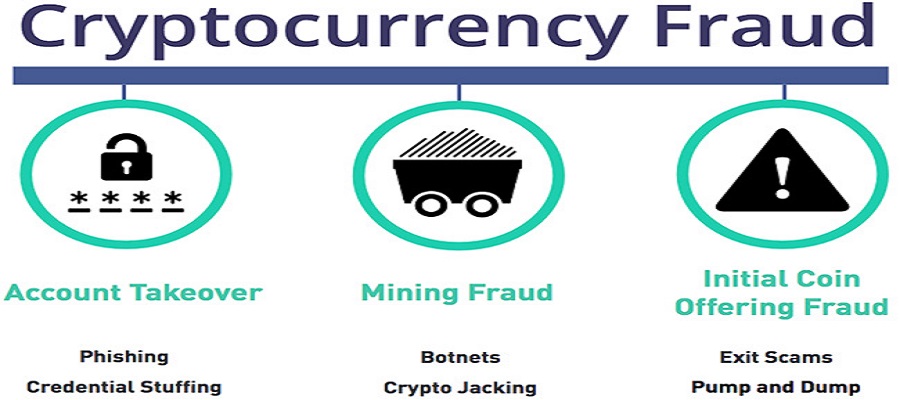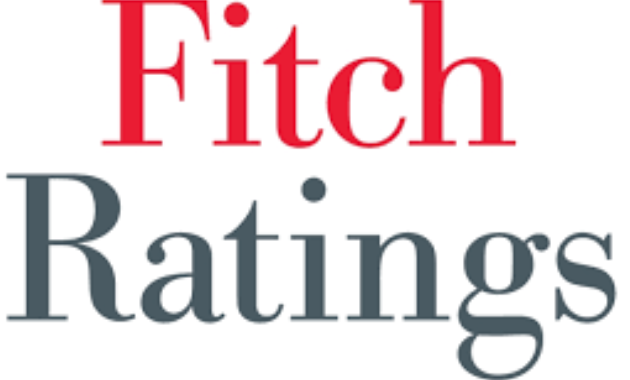E-Financial
US Elections: Trump Wins! What Does this Mean for Nigeria?

By Lukman Otunuga, Senior Market Analyst At FXTM
America has chosen Republican Donald Trump as its 47th president following a tight race for the White House!

As of writing, Trump has secured 277 electoral votes with Republicans taking control of the Senate. If the House comes under his control, this will be a “red sweep” scenario.
Assets tied to the “Trump trade” rallied during the Asian session after Trump took an early lead with his victory keeping bulls in the game. US futures are flashing green, Treasury yields have jumped while Bitcoin hit an all-time high.
Before election day, we thoroughly discussed a list of assets that could soar on a Trump win:
· US dollar: jumped 1.8% – its biggest 1-day gain since February 2023 on the prospects of slower rate cuts by the Federal Reserve.
· Bitcoin: rallied almost 10% to hit a fresh all-time high above $75,000 as crypto enthusiasts cheered a pro crypto president.
· S&P500 index: futures climbed 1.4% signalling that the S&P500 will open hitting fresh all-time highs. As mentioned in our week ahead report, the prospects of corporate tax cuts and a softer regulatory environment under Trump is good news for US equity bulls.
What does this mean for Nigeria?
Trump’s victory may pressure oil prices as he is seen pushing for a further increase in domestic oil and gas production, leading to increased supply in the long term.
In addition, his policies could see a boost in US growth – triggering inflationary pressures.
Should this prompt the Fed to keep interest rates higher for longer, a stronger dollar may drag oil prices lower as a result. This could be bad news for major oil producing countries who acquire most of their revenues from oil sales.
For Nigeria, the combination of lower global oil prices and a stronger dollar could add to its woes as it navigates a rough period.
Here are assets that could be burned by Trump’s return to the White House:
· Gold: dropped as much as 1.5% thanks to a stronger dollar and rising Treasury yields. The prospect of slower Fed rate cuts could limit upside gains.
· Chinese stock indices: slipped this morning amid renewed fears over US-China trade tensions.
· European stock indices: flashed red due to concerns over the impacts of Trumps proposed tariffs on Europe.
· Currencies of major US trading partners: Euro (EUR), Chinese Yuan (CNH), and especially Mexican Peso (MXN) have all weakened against the USD.
The bigger picture…
Trump’s return to the White House will most likely set the market tone for the next few years with the USD, Bitcoin and other assets tied to the “Trump trade” the biggest winners.
Investors with some skin in the game have already experienced how markets reacted under Trump between 2017 – 2021.
Trump’s unpredictability, policy uncertainty and tariff wars with China left investors on edge. This and other major themes triggered sharp moves on the Vix index during his term. Market volatility jumped over 60% during Trump’s previous administration, from 2017 until 2020. Since then, volatility fell about 10% under President Biden.
What does this mean?
And Trump’s return to the White House is likely to trigger fresh levels of volatility across the globe.
· Trump’s proposed tariff increases in Europe and China could spark a global trade war.
· If this pushes up the prices for American consumers, a return of inflation may spell higher interest rates – boosting the USD.
· An appreciating USD could hit gold prices along with emerging market currencies.
· On the geopolitical front, Trump has already vowed to “stop wars” and swiftly end the war in Ukraine. Any major shifts in US foreign policy that escalate tensions could trigger risk-aversion.
By the way….
With the US election done and dusted, the next market-moving event could be Thursday’s Fed rate decision.
As discussed in our week ahead report, US interest rates are widely expected to be cut by 25 basis points in November. But the election outcome is likely to determine what action the Fed will take in December and beyond.
Traders are currently pricing in a 67% probability of another 25-basis point cut by December.
Given how Trump’s victory could lead to rising inflationary pressures down the road, this may prompt the Fed to keep interest rates higher for longer.
It will be wise to keep a close eye on the US dollar and gold which remain sensitive to US rate expectations.
· A less dovish than expected Fed may push the US dollar higher while pulling gold further away from its all-time high at $2790.
· If the Fed confirms that a December cut is still on the table, this may limit the USD’s upside while supporting gold prices.
E-Financial
African Union Launches Credit Rating Agency to Promote Regional Economic Integration

The African Union has taken a significant step towards promoting economic resilience in Africa with the launch of the African Credit Rating Agency (AfCRA).

The new agency aims to provide a fair, transparent, and unbiased credit rating system, addressing the biases of global rating firms that have reportedly cost Africa over $75 billion in investment opportunities.
According to Kenya’s President, William Ruto, who unveiled the agency at an AU event in Addis Ababa, Ethiopia on Friday, “Global credit rating agencies have not only dealt us a bad hand, they have also deliberately failed Africa.”
Ruto criticized the flawed models, outdated assumptions, and systemic bias used by global rating agencies, which paint an unfair picture of African economies and lead to distorted ratings, exaggerated risks, and unjustifiably high borrowing costs.
The launch of AfCRA is a response to the long-standing grievances of African countries regarding their treatment by international credit rating firms.
The agency aims to provide fair, transparent, and development-focused credit ratings that reflect the realities and potential of African economies.
Improving Africa’s rating by one notch could unlock $15.5 billion in additional funding for the continent, according to Ruto.
The idea of creating an African credit rating agency has been in the pipeline for years, with the AU officially announcing its plans to move forward with the project in September 2023.
The push for an African credit rating agency gained momentum in 2022 when Senegal’s former president Macky Sall called for a new system to “end the injustices” faced by African countries.
The African Credit Rating Agency is part of Africa’s continuous march towards economic resilience, which also includes the recent establishment of the African Energy Bank, headquartered in Nigeria.
The bank aims to provide support to unleash Africa’s energy potential and bring an end to energy poverty on the continent.
E-Financial
Nigeria Worst Hit by Crypto Currency Fraud

Fraud in the crypto industry in African continent has soared by 48 percent over the past year and Nigeria is worst hit according to report by CAJ News.

This is according to the Sumsub State of the Crypto Industry 2025 report, which indicates Nigeria recorded the highest rate of fraud across the sector, at 8,3 percent.
Thus, this percentage of verification attempts were flagged as fraudulent.
Uganda, Kenya and Tanzania all have fraud rates of 4,8 percent, with Cameroon (4,5 percent), Ethiopia (3,7 percent), Ghana (3,5 percent), Algeria (2,6 percent), Benin (2,6 percent) and Morocco (2,1 percent) recording significant rates.
The most popular fraud types are document forgery (affecting 31 percent of surveyed companies), phishing (20 percent) and money mulling (15 percent), followed by account takeover (14 percent) and forced verification (12percent).
Simsub, the cyber crime expert, believes this surge highlights the need for companies to adopt artificial intelligence (AI)-powered detection, biometrics and continuous monitoring to enhance security.
The report states that innovations like biometric checks, AI-backed automation and document-free verification have boosted crypto platform users’ on-boarding success rates to 93,39 percent and reduced verification time by 46 percent, overall improving customer on-boarding while reducing drop-off cases.
Hannes Bezuidenhout, Vice President of Business Development (Africa) at Sumsub, said Africa’s growing adoption of crypto provided its own challenges, but the company foresaw increasing demand and growing user expectations across the continent.
“So it’s crucial for VASPs operating in the region to implement secure verification systems and stay vigilant to fraud, while keeping an eye on evolving and new regulations concerning the crypto sector to avoid fines.”
VASP is an acronym for virtual asset service provider.
E-Financial
Banking Consolidation Less Likely as Nigerian Banks Meet Capital Requirements – Fitch

Fitch Ratings has said that Nigerian banks are making significant progress in raising core capital to meet new paid-in capital requirements. The rating agency noted that the banks are generally on track to meet the end-of-first quarter (Q1) 2026 deadline.

This is supporting a recovery in capitalisation from the impact of naira devaluation, providing fuel for business growth. It also reduces the likelihood of significant banking sector consolidation.
In March 2024, the Central Bank of Nigeria announced a significant increase in paid-in capital requirements (share capital plus share premium) for commercial, merchant and non-interest banks.
Banks have three ways to comply – through equity injections, M&A and downgrading their licence authorisation.
Fitch-rated banks have made notable progress towards compliance. Almost all have raised capital or formally launched the process to do so.
The two largest banks, Access Holdings and Zenith Bank, are the first to secure enough fresh capital to meet the N500 billion requirement for an international licence. First HoldCo, United Bank for Africa and Guaranty Trust Holding Company are taking a phased approach.
They have recently raised capital and have shareholder approval to begin raising more to meet the N500 billion requirement. First HoldCo’s and United Bank for Africa’s recent rights issues are awaiting final regulatory approval.
Fidelity Bank and FCMB Group have completed initial capital raisings but will need to raise more to maintain their international licences. As second-tier banks, they must raise significantly more capital relative to their balance sheets than larger banks.
They have extraordinary general meeting approval for this, although they could consider downgrading to a national licence as they each have just one foreign subsidiary.
Ecobank Nigeria Limited (ENG) and Jaiz Bank needed only small capital injections to meet their requirements and have already achieved compliance. We estimate that ENG is still in breach of its total capital adequacy ratio (CAR) requirement of 10 percent but it has further capital-raising plans to restore compliance. Stanbic IBTC Holdings has launched a rights issue to raise capital to maintain its national licence.
Strong investor appetite has ensured that the vast majority of capital raisings so far have been successful, and most first- and second-tier banks should be able to meet their new capital requirements through capital raisings alone. Therefore, we believe the likelihood of banking sector consolidation among first- and second-tier banks has decreased.
Union Bank of Nigeria (UBN), which is also in breach of its 10 percent CAR requirement, and third-tier banks have generally been slower to raise capital. Wema Bank has shareholder approval to raise enough capital to retain its national licence and plans to launch the process in April.
Coronation Merchant Bank recently received board approval. It is not clear whether UBN and unrated third-tier banks have received the necessary approvals. M&A activity and licence downgrades remain more likely among third-tier banks.
The capital raisings are contributing to a recovery in capitalisation from the impact of naira devaluation, which put pressure on capital ratios and increased US dollar credit concentration risks. Strengthened buffers over minimum CAR requirements will mitigate risks from a challenging operating environment, including regulatory intervention and further naira volatility, while providing room for business growth.
The capital raisings are unlikely to lead to banks with Long-Term Issuer Default Ratings (IDRs) of ‘B-’ being upgraded given the constraint of Nigeria’s ‘B-’/Positive Long-Term IDR.
However, they could contribute to Outlook revisions to Positive for some banks, and, providing CAR compliance is restored, to upgrades for UBN and ENG (both rated ‘CCC’). Capital raisings are more likely to affect National Long-Term Ratings, which measure the relative creditworthiness of Nigerian issuers.

 E-Business3 days ago
E-Business3 days agoSchmidt, Ex Google Chief Says AI Risky in Terrorist Hands

 News3 days ago
News3 days agoFG Order MDAs to Close Commercial Banks’ Accounts, Enforce TSA Policy

 News2 days ago
News2 days agoTikTok Returns on Apple, Google US App Stores as Trump Delays Ban

 General News2 days ago
General News2 days agoResearchers Develop Innovative Treatment for Malaria

 E-Financial3 days ago
E-Financial3 days agoNigeria Worst Hit by Crypto Currency Fraud

 Telecom3 days ago
Telecom3 days agoSalesforce Collaborates with Tech Leaders to Launch AI Energy Score for Model Efficiency

 Telecom3 days ago
Telecom3 days agoGombe Commissioner of Police Visits GBB Command Centre, Strengthens Collaboration on ICT-Driven Security Solutions

 E-Financial3 days ago
E-Financial3 days agoBanking Consolidation Less Likely as Nigerian Banks Meet Capital Requirements – Fitch





















